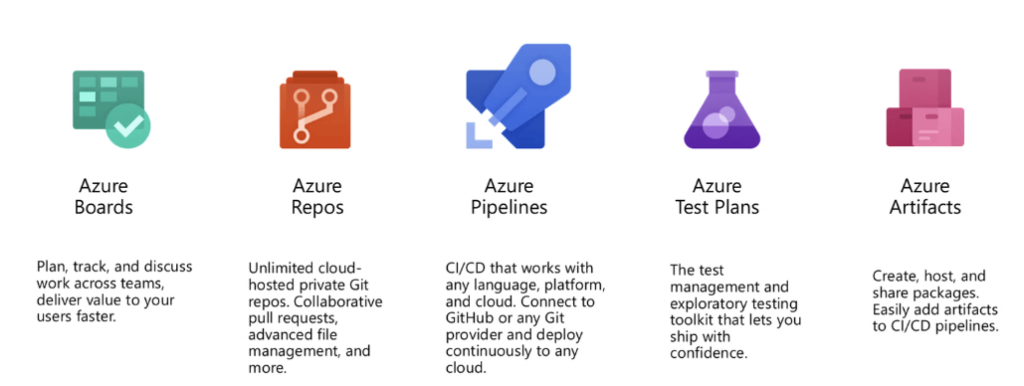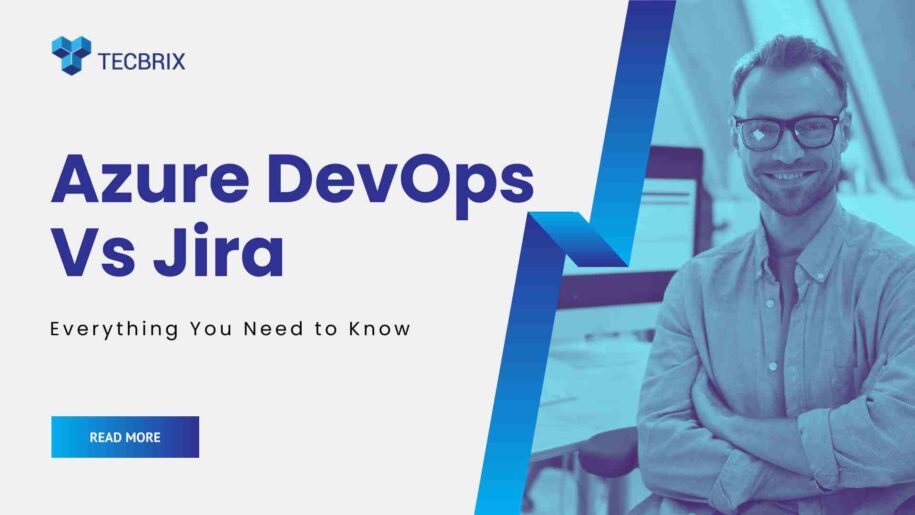Azure DevOps vs Jira – a debate between the two of the most common and favorite tools for project management used by software development professionals around the world. However, before we get into the Azure DevOps vs. Jira debates, it is important to know and understand each one properly. Each of these tools comes with its own pros and cons, and which is better for you depends on what you require from your software development project management tool. Have you been wondering about the differences between Azure DevOps and Jira? Let’s discuss them.
Azure DevOps vs. Jira
Azure DevOps and Jira are highly functional and important tools. However, to understand the Azure DevOps vs Jira debate, it is best to be aware of the similarities and differences between the two. Let’s look at them one by one.
Azure DevOps
Previously called Visual Studio Team Service (VSTS), Azure DevOps is an enterprise-ready tool. It is basically used to develop software applications from scratch. Azure DevOps is a tool that Microsoft offers. It comes with its own cloud services that include collaboration tools that are compatible with many platforms. This tool allows users to incorporate the DevOps lifecycle in a business. It is a user-friendly platform that enables users to translate their ideas into software and allows them to achieve better collaboration of the modern services used for software development.

While it offers limited search functionality, Azure DevOps has the advantage of advanced traceability. However, it does not include built-in roadmaps for tracking the progress of projects. This tool offers technical support through Twitter and a support ticket system. It provides a free plan for up to five users and a free trial of 30 days. The starting price for a paid plan is $6 per user each month or $30 per month for up to ten users.
Azure DevOps offers Agile tools that help with test management and project deployment to cross-platform systems. Users can enjoy custom dashboards if they want them. In addition, Azure DevOps can integrate with Git for coding. It enables teams to track a project from the first step to the last and lets them establish connections between different work items and stages.
Features Offered by Azure DevOps
- It can integrate Git to allow the versioning of code.
- Tools can enable improved code representation.
- It offers a dashboard for project management.
1. Jira
Jira was developed by an Australian company called Atlassian in 2002. It is a robust project management tool for software development. It allows users to track bugs, detect issues, and fulfill other project management needs. While Jira is primarily a project management tool, it allows more than just issue tracking. It can be used for general task development or Agile development in an organization. In addition, Jira features an easy collaboration with teams for software development. Since the majority of applications are built to be compatible with it, it can be easily used for several processes within project management.
Jira can be used for project types other than software development. It is also an enterprise-ready tool with comprehensive agile reporting that allows teams to be reachable for several reports. Jira is free for up to ten users and offers a free trial of seven days. The starting price for paid plans is $7.50 per user each month for teams with a strength between 11 and 100. The tool can be used by a variety of customers, and several versions are available, including Jira Software, Jira Core, and Jira Service Desk.

Jira offers a support ticket system for technical support. It supports Agile methodology; for instance, it provides Kanban and Scrum boards. It has a strong search functionality for issues in code. Furthermore, Jira also allows for the adjustment of workflow iterations. Since Jira provides a simple yet powerful project configuration, it is easy for teams to personalize their issue types, project workflow as well and fields for the board they need.
Jira integrates with Bitbucket. Users can also enjoy custom dashboards and can even add more features while in progress, a feature that gives it an edge over Azure DevOps. It also includes built-in roadmaps for development teams to track progress. However, Jira offers only limited traceability. Furthermore, traceability is not direct in Jira as the group on which the project is completed does not become visible.
Features of Jira
- It is compatible with several add-ons that make integrations of various software easy.
- It offers a range of business templates for task management.
- It can be operated in more than ten languages that are commonly used in organizations.
- It offers native mobile support.
- The Atlassian Marketplace offers 1000 plug-and-play add-ons to fit any development process or case.
The Choice of Azure DevOps vs. Jira
Azure DevOps vs. Jira – both are useful and popular tools for software development and for a good reason. In the Azure DevOps vs. Jira debate, the tool you decide to pick will depend on the main purpose of your getting a software development tool. Azure DevOps can be your preferred option if you need a tool for the management and tracking of the entire software application development cycle.
As for Jira, it is best when you need a project development tool that can help you manage both software development and other types of projects. To sum it up, Azure DevOps can be considered a set of development tools for software teams. On the other hand, Jira Software Cloud enables a team of any type to manage work, implementing Agile methodologies as per their needs.
If you are looking for Azure DevOps Consultancy, then Reach Out to Our Cloud Experts to guide you.

